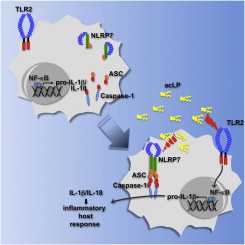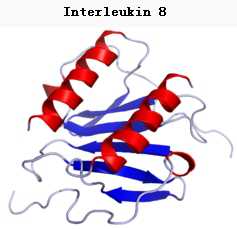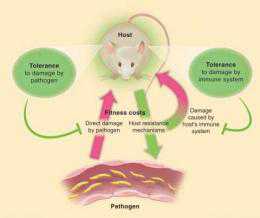J. Immunol.:人自然杀伤细胞在异种移植排斥中起重要作用
2012-04-14 towersimper 生物谷
细胞毒性T细胞和自然杀伤细胞互补性作用的示意图,图片来自维基共享资源。 来自西班牙Bellvitge生物医学研究所(Bellvitge Biomedical Research Institute)的研究人员首次研究人自然杀伤细胞(natural killer cell, NK)抗猪软骨细胞的反应。研究结果于2012年1月27日发表在Journal of Immunology期刊上,表明作为天然免

细胞毒性T细胞和自然杀伤细胞互补性作用的示意图,图片来自维基共享资源。
来自西班牙Bellvitge生物医学研究所(Bellvitge Biomedical Research Institute)的研究人员首次研究人自然杀伤细胞(natural killer cell, NK)抗猪软骨细胞的反应。研究结果于2012年1月27日发表在Journal of Immunology期刊上,表明作为天然免疫系统特征之一的自然杀伤细胞在排斥猪软骨细胞异种移植(xenotransplantation)中发挥着重要的作用。
自然杀伤细胞
自然杀伤细胞连同嗜中性白细胞和巨噬细胞,是细胞第一道防御体系的一部分。自然杀伤细胞参与非获得性免疫反应,即天然免疫反应。它们负责鉴定特异性的细胞类型(肿瘤、感染或者外来物)并利用细胞毒性将之摧毁。
这项研究的通讯作者Cristina Costa说,自然杀伤细胞数量虽少,但是它们在移植领域中的重要性越来越大,“我们观察到天然免疫在调节获得性免疫中发挥着重要的作用,而获得性免疫在身体排斥移植器官中起着比较关键的作用。”
异种移植
Costa领导的研究小组正在实现将猪软骨细胞移植到人身上以便修复软骨损伤。研究小组研究了在猪细胞存在下人自然杀伤细胞“在体外”产生的反应。他们注意到在移植条件下和在高水平抗体和细胞因子存在时,人自然杀伤细胞产生细胞毒性反应,然后裂解(摧毁)外源细胞,在这项研究中,外源细胞指的是猪软骨细胞。
研究人员解释道,“在这项研究中,我们阐明了几种分子参与自然杀伤细胞的附着过程和细胞毒性。”他们相信这项研究为科学家继续深入研究指明方向,“[在进行移植时],一方面我们不得不阻止抗体储存,因为抗体是增加细胞毒性的一个关键性因子,另一方面我们必须努力通过修复相关的分子来降低细胞附着。”
就Costa提出的软骨异种移植的临床应用而言,下一步实验将是“对猪软骨细胞进行基因修饰”,这样人自然杀伤细胞就不能将它们识别为外来者,因而避免产生移植排斥。
软骨移植
人之间的软骨移植在诊所并未得到广泛地应用,但是科学家已经成功地让遭受创伤性损伤的组织再生。自体移植(autologous transplant)是用来自同一个人的细胞进行的,而异基因移植(allogenic transplant)是用来自另一个人的细胞开展的。
Costa说,“在这两种情形中,人们遇到的限制就是可获得的细胞数量。如果我们能够进行软骨异种移植,它将需要增加可获得的用于移植的细胞数量和质量。”在未来,“我们可能能够将猪软骨细胞异种移植到骨关节炎患者或者甚至是类风湿性关节炎患者身上”,但是“在这些情形中,其他的发炎和免疫过程也可能会影响移植的最终结果。”(生物谷:towersimper编译)

doi:10.4049/jimmunol.1100433
PMC:
PMID:
Multiple Receptors Trigger Human NK Cell-Mediated Cytotoxicity against Porcine Chondrocytes
Roberta Sommaggio, André Cohnen, Carsten Watzl and Cristina Costa
Xenotransplantation of genetically engineered porcine chondrocytes may provide a therapeutic solution for the repair of cartilage defects of various types. However, the mechanisms underlying the humoral and cellular responses that lead to rejection of xenogeneic cartilage are not well understood. In this study, we investigated the interaction between human NK cells and isolated porcine costal chondrocytes (PCC). Our data show that freshly isolated NK cells adhere weakly to PCC. Consequently, PCC were highly resistant to cytolysis mediated by freshly isolated NK cells. However, the presence of human natural Abs in the coculture was often sufficient to trigger cytotoxicity against PCC. Furthermore, IL-2 stimulation of NK cells or activation of PCC with the proinflammatory cytokines TNF-α or IL-1α resulted in increased adhesion, which was paralleled by increased NK cell-mediated lysis of PCC. NK cell adhesion to PCC could be blocked by Abs against human LFA-1 and porcine VCAM-1. NKG2D and NKp44 were involved in triggering cytotoxicity against PCC, which expressed ligands for these activating NK cell receptors. Our data further suggest that NKp30 and NKp46 may contribute to the activation of NK cells by PCC under certain conditions. Finally, comparative studies confirmed that PCC are more resistant than porcine aortic endothelial cells to human NK cell-mediated lysis. Thus, the data demonstrate that human NK cells can kill pig chondrocytes and may therefore contribute to rejection of xenogeneic cartilage. In addition, we identify potential targets for intervention to prevent the NK cell response against pig xenografts.
本网站所有内容来源注明为“梅斯医学”或“MedSci原创”的文字、图片和音视频资料,版权均属于梅斯医学所有。非经授权,任何媒体、网站或个人不得转载,授权转载时须注明来源为“梅斯医学”。其它来源的文章系转载文章,或“梅斯号”自媒体发布的文章,仅系出于传递更多信息之目的,本站仅负责审核内容合规,其内容不代表本站立场,本站不负责内容的准确性和版权。如果存在侵权、或不希望被转载的媒体或个人可与我们联系,我们将立即进行删除处理。
在此留言














#重要作用#
50
#排斥#
66
#自然杀伤细胞#
53